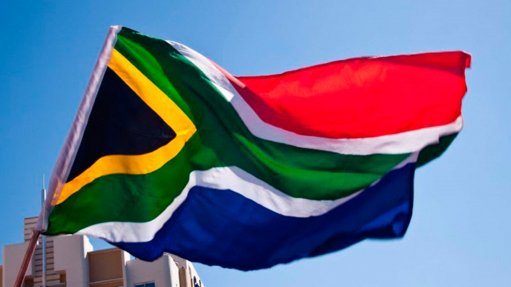
![]() South Africa’s notice to withdraw from the International Criminal Court (ICC) has once again raised questions about the ethics of its foreign policy.
South Africa’s notice to withdraw from the International Criminal Court (ICC) has once again raised questions about the ethics of its foreign policy.
Responses to the move have highlighted inconsistencies and contradictions in what has been perceived as the country’s ethical foreign policy.
What do we mean by “ethical foreign policy”? The concept is highly contested. But it can generally be understood as governments taking on an enlightened view of their self-interest by committing to alleviate human suffering and to advance international co-operation. This solidarity is seen in policies related to foreign aid, refugee programs, global human rights and health promotion as well as poverty alleviation initiatives.
The idea of ethical foreign policy flows from comments made by President Nelson Mandela in 1993. He outlined the core principles of post-apartheid South Africa’s foreign policy in a seminal article published in Foreign Affairs. His view can be captured in the singular assertion that human rights would be the light that guided the country’s foreign relations.
This came to be seen in some domestic and global policy circles as the core value informing South Africa’s international engagements.
The decision to leave the ICC – plus other questionable foreign policy decisions – suggests that South Africa’s foreign policy is caught in a dilemma. It is torn between its lofty ideas, an unsettled identity crisis and shifting priorities in an increasingly multipolar and complex international order.
Beyond Mandela and Mbeki
Mandela highlighted South Africa becoming a responsible global actor based on:
-
centrality of human rights in international relations;
-
promotion of democracy worldwide;
-
primacy of justice and respect for international law;
-
peaceful resolution of conflicts;
-
prioritisation of African interests and concerns in policy choices; and
-
promotion of economic cooperation in an interdependent world.
It is now time to look beyond Mandela’s article and his successor Thabo Mbeki’s efforts to institutionalise and fine-tune South Africa’s foreign policy, particularly in Africa and the global South.
To avoid a one-sided critique that simply focuses on human rights, South Africa’s foreign policy decisions must be understood in context.
Part of that context is the country’s quest for purpose within Africa and globally.
It is easy to see how detractors get caught in the same revolving door of criticisms. Critics often point to a lingering set of tensions in South Africa’s foreign policy decisions. These are evident from decisions that show the country’s weak agency, and highlight inconsistencies and contradictions.
Over the past 20 years there have been some notable blunders. These have included:
-
siding with authoritarian governments on the continent, such as Swaziland and Zimbabwe;
-
bizarre voting patterns in the United Nations Security Council. One such case was South Africa’s support of Resolution 1973, which authorised the NATO-led intervention in Libya. This contradicted the African Union’s position for a political solution to the crisis; and
-
deployment of troops in the Central African Republic in 2013. Not only was the legal basis of the deployment challenged, it was also negatively received by the Economic Community of Central African States.
All of these developments led to fierce criticism of the country’s foreign policy. It has been variously labelled as clueless, schizophrenic, immoral and all-over-the-place.
Knowing who you are and what you want
We believe that part of the problem is that South Africa has an unsettled identify crisis. This was raised during a parliamentary briefing by the South African Council on International Relations. It was noted then that:
We cannot know what we want, if we do not know who we are.
That is the question facing South Africa. It affects how the country defines its national interests in an evolving world. This uncertainty has led to tensions in the country’s identity in foreign affairs. This is evident in:
-
inconsistencies between stated policy and practice;
-
tensions between values (like adhering to a human rights approach to foreign policy) and interests;
-
uncertainty whether to put “South Africa first”, “Africa first” or to pursue a “BRICS globalism” approach;
-
ambiguity over whether to be part of collective decisions or to lead by being pivotal voice in advancing the African agenda in world affairs; and
-
balancing the global governance agenda with national interests.
Not knowing “who we are” runs the risk of obsessing over ideologies and reductionist logic in labelling South Africa’s foreign policy as simply unethical. What’s needed is a clearer understanding of the demands and makings that constitute a value-based foreign policy.
Ethical foreign policy
All countries face the challenge of working out what constitutes self-interest or national interest and the increasing difficulties in defining these interests in an interconnected but rapidly changing world.
Our intention is not to justify or condemn South Africa’s notice to withdraw from the ICC. The challenge is for the country’s foreign policy bureaucracy to provide a balanced assessment of South Africa’s identity in global affairs.
This means taking into account its role in influencing and shaping the rules and values that pertain to the conduct of global affairs. This, while tempering identity with the realities of realpolitik, fluidity of interests and the enduring struggle between competing ideas shaped by global and continental constraints.
Against the backdrop of drifts in South Africa’s foreign policy, defining the country’s strategic impetus in global affairs has become all the more important.
This article was co-authored with Faith Mabera, a researcher in African foreign policy at the Institute for Global Dialogue. The institute is associated with University of South Africa.
Written by Sanusha Naidu, Senior Researcher, University of South Africa
This article was originally published on The Conversation. Read the original article.